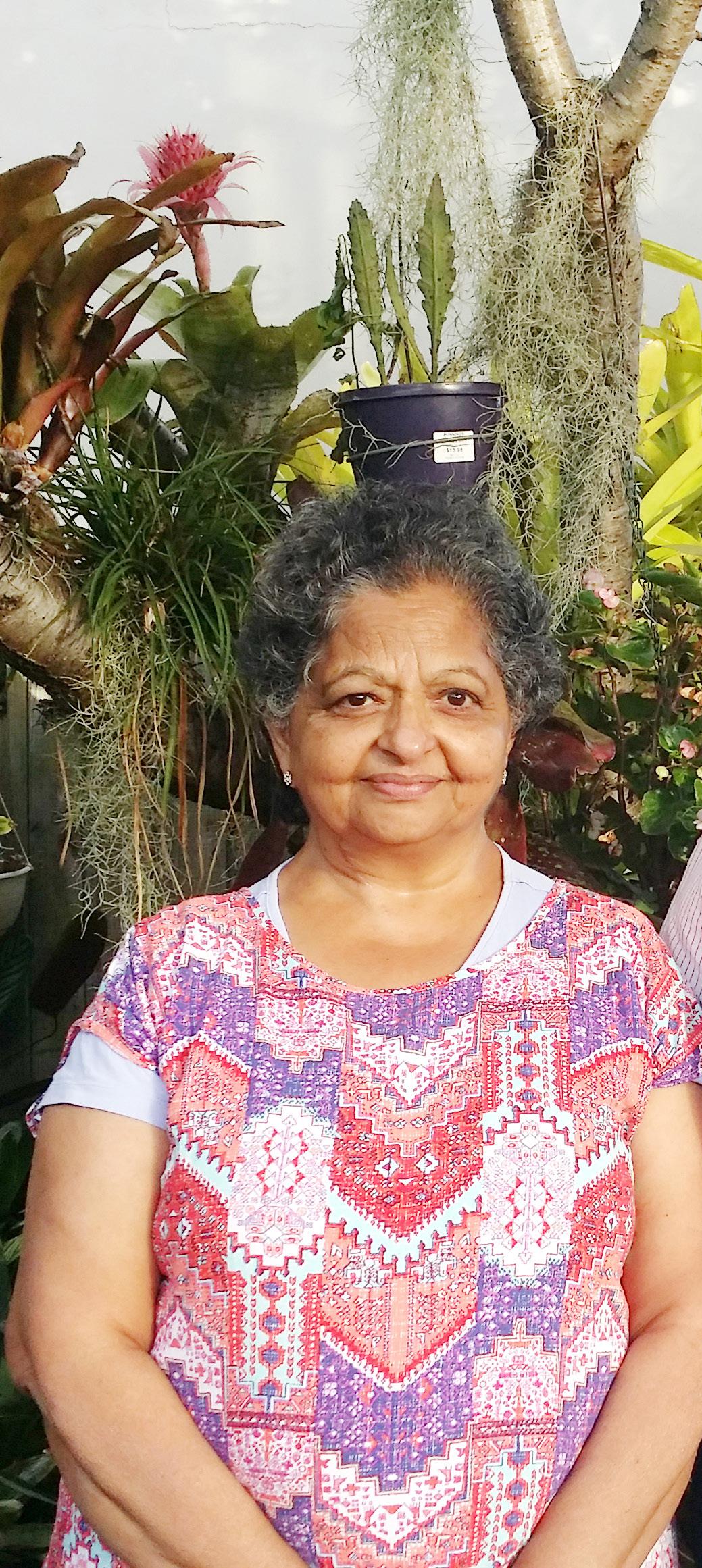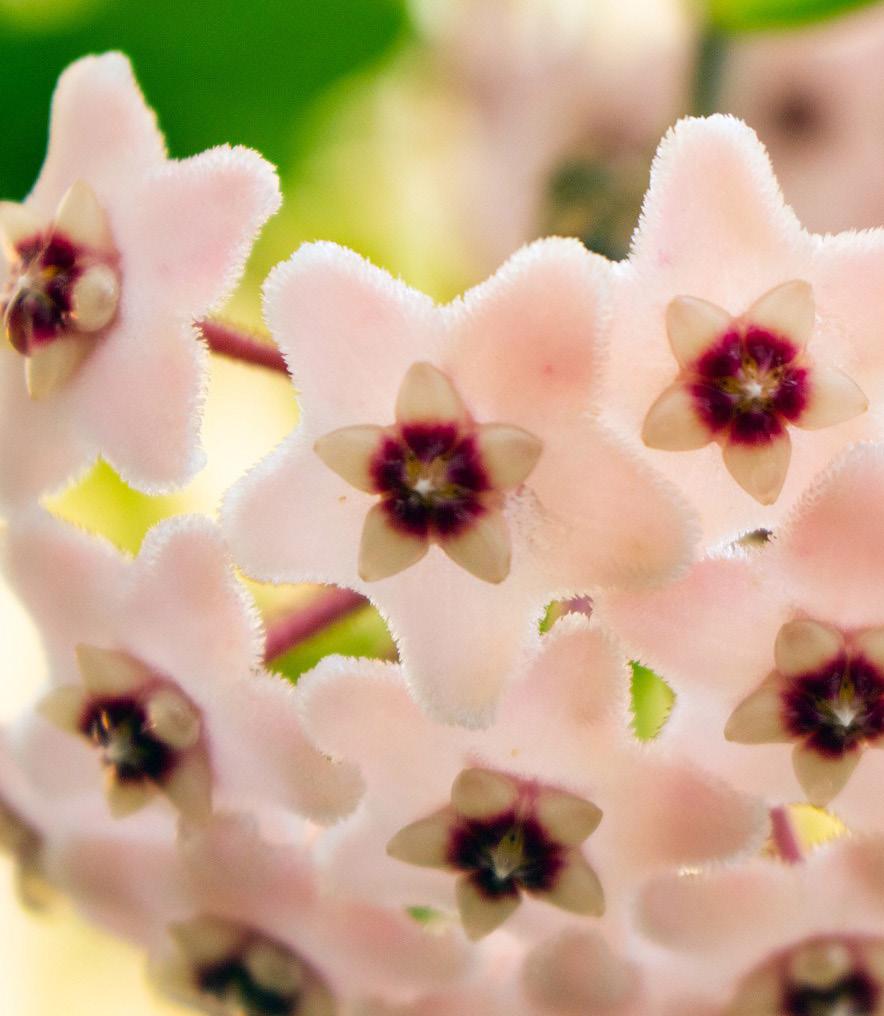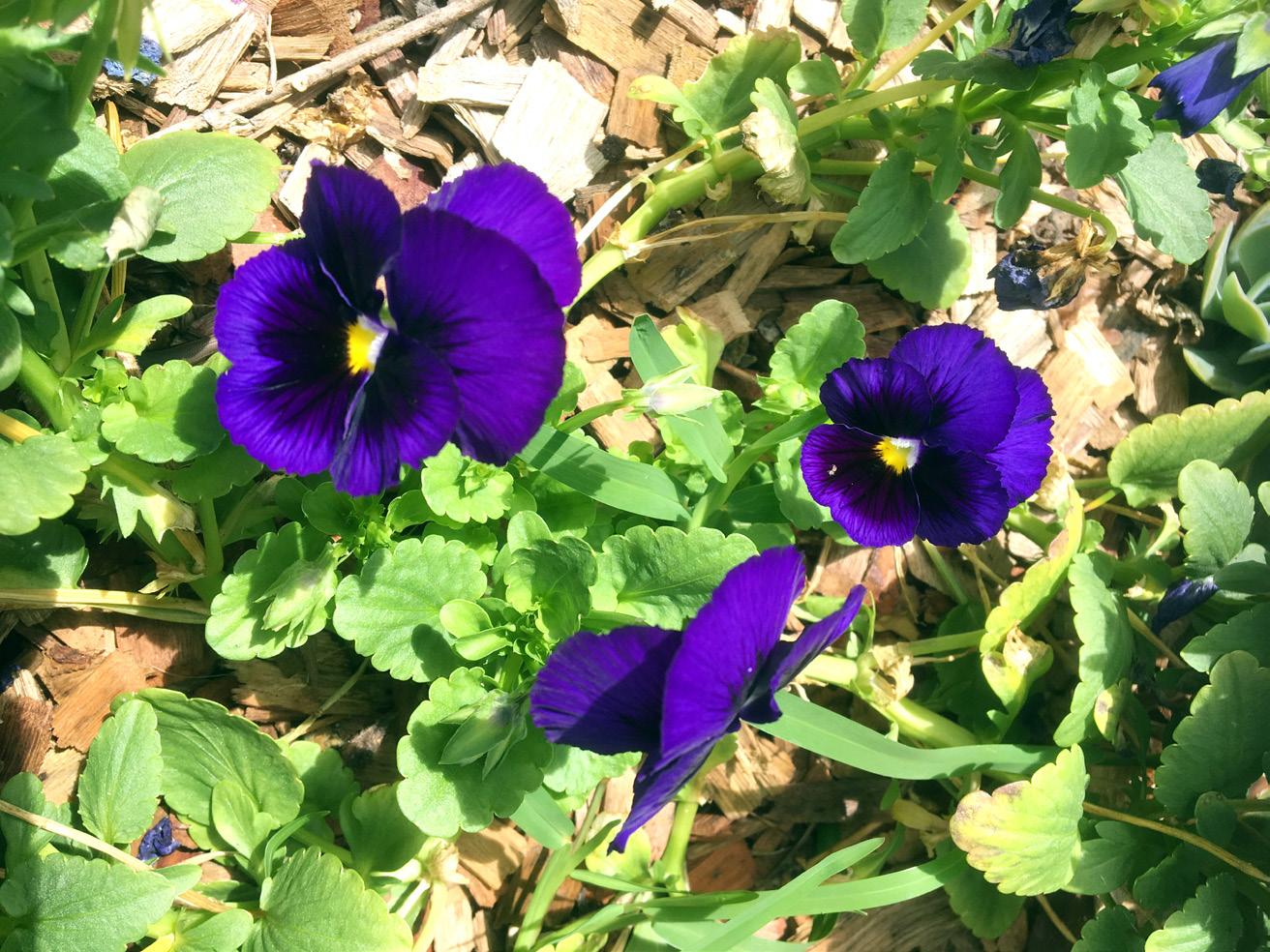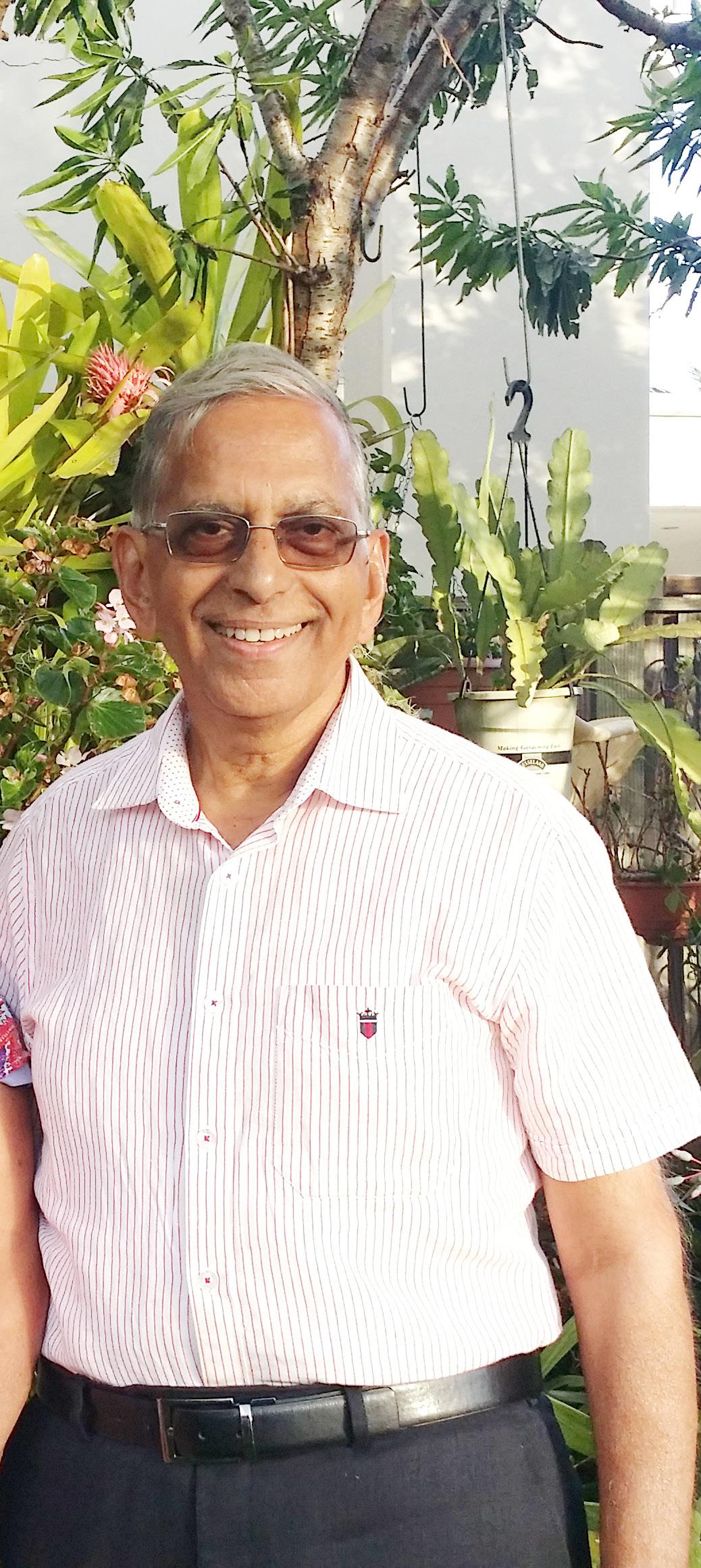
3 minute read
The power of petals
from 2019-03 Sydney (2)
by Indian Link
How the restorative effects of gardening helped Preeti Sawrikar bounce back after a bout of ill health
and went to the hospital to visit his mother, who was a friend. I had no idea that one day my life would be in his hands,” says Preeti wondrously.
Bouncing back to tend her garden after almost a month in hospital, Preeti’s silent wards smile back at her, and at all those who visit the jam-packed garden, in her Concord home. She has lived here since the 1970s with her husband Dr Purushottam Sawrikar. No nook or cranny is spared. Walls, fences, rafters and windows – a plant hangs everywhere.
“It wasn’t like this always,” says Preeti. The spaces were bare while the young couple were busy with their work and raising two children. A bad accident which caused burns to a third of Preeti’s body, left her depressed and it was a wise doctor who advised her to take up gardening.
A neighbour was passionate about bromeliads and so she started with this plant. “One became many and my hobby slowly became a passion, then an obsession,” she laughs, adding “Each mother plant gave babies and my family garden show, went to exhibitions, read books and scoured the internet for tips from other gardeners.”
After retiring from full-time work in 2010, this has been her main occupation, often spending three to five hours daily tending her plants.
Here you can see epiphytic plants, tied to fences, a variety of bromeliads, including the massive bromeliad Alcantarea, orchids and succulents. Like a parent
Horticulture Therapy


The therapeutic qualities have been known to In the last forty-odd conducted by psychologists provided scientific evidence In a classic study that interest in this area, post-surgery patients recovered faster, and pain medication, if their opened out to the natural as opposed to built structures. Gardens influence cognitive, and psychosocial being of individuals. stress and anxiety by competing stimuli in Working with plants causes us to live in the moment. It allow us as in controlling beds weeds, giving us satisfaction. But there are other qualities as well. To it is said, is to believe Gardeners will tell you garden inculcates qualities and careful watchfulness; thrift, and very significantly, And even those of gardeners take from qualities of serenity, tolerance, and the notion coexistence. Gardens also bring connect with the end an acceptance of the cycle, and the solace in rebirth or new birth. gardening” could be with trauma and loss. (Check out the work Whiteley in Wendy's Lavender Bay, Sydney).

Horticulture

qualities of nature man for ages. years, research psychologists has evidence as well. that perhaps ignited it was found that patients in a hospital ward and required less their ward windows natural environment, structures. the physical, psychosocial wellNature reduces by screening out our busy lives. and flowers the present to feel in control, beds and borders and satisfaction.
other recuperative plant a garden, believe in tomorrow.
you that to tend a qualities of patience watchfulness; industry and significantly, trust. us that are not gardens the endurance, notion of peaceful bring us in close end of existence; the life and death solace and upliftment birth. Indeed “grief a way of coping loss.
of artist Wendy Secret Garden at Sydney).
proudly extolling the virtues of their child, Preeti speaks about her Alcanterea whose impressive size is matched by its humungously erect flower bloom. “It can take up to 20 years for this bromeliad to bloom and then the mother plant slowly dies,” says Preeti.





Another impressive plant in Preeti’s garden is the Brahma Kamal, a plant sacred to Hindus and revered as the flower of Lord Brahma. This night blooming flower has a delicate fragrance. You are considered very lucky if you see it bloom and Preeti and Purushottam have certainly seen a lot of these flowers.
Preeti loves to share her plants with one and all. There is only one condition imposed - you must love and care for her gift. Preeti says, “When you have brought a plant into your family and they give babies, you don’t have the heart to throw them away when space gets limited. So I am always happy for them to find a new loving home.”
There is no doubt that besides the support of her family, Preeti’s garden has played a big role in her recovery.
“My garden has been my pain management and my therapy,” she says.
She has only the highest praise for Dr
‘angels’, the nurses and staff at the hospital. The treatment was so good that Preeti’s life is almost normal. Now with the skull, neck and fore bones of her back fused with plates, bridges and screws, Preeti is full of amazing plant ideas.
As I follow Preeti around in her magical garden, I can’t help admiring the feat of modern medicine, the hands of a skilled doctor and the faith of this patient.
“Lots of people have helped me but these plants are such a major part of my recovery,” acknowledges Preeti.















